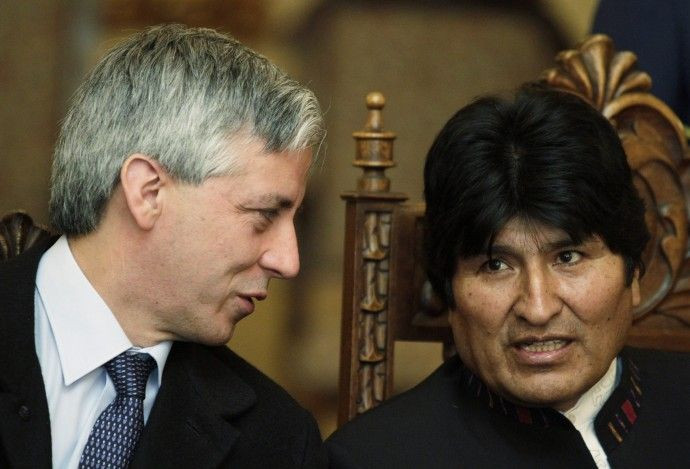Fuel price surge prompts strike call in Bolivia

The principal transport union in Bolivia, The Drivers' Confederation, has called for an indefinite strike to protest against the government’s decision to sharply raise the price of fuel.
The price of high-octane gasoline will climb by 57 percent; low-octane petrol prices will now rise by 73 percent, while diesel will skyrocket 83 percent.
The government said the price hikes were designed to compel energy firms to produce more oil and to reduce dependence on imports.
We are bringing fuels up to international price levels, said vice president Alvaro Garcia Linera Garcia.
State subsidies cost $380-million a year; we don't want this to continue. We buy expensive diesel fuel and sell it cheap. We had to raise prices so energy producers feel the need and incentive to produce (oil), so there will be more diesel and gasoline and we will import less ... in one, two or three years, we won't have to import any gasoline or diesel at all.”
The government also said it was forced to boost prices because so much fuel was being smuggled by profiteers and that it could not keep subsidizing fuel.
We are also subsidizing smugglers who take our gasoline and diesel in hidden double tanks and jerry cans, on foot and by bicycle, on donkeys and llamas, to other countries like Peru, Chile, Argentina, and Brazil, Garcia-Linera said. “We can no longer subsidize either smugglers or the powerful who have five or six cars. What we want to do is to use the money for fuel subsidy for the benefit of the Bolivians, for the neediest.”
However, the move to cut subsidies has provoked anger among unions which have called for a work stoppage.
The labor action will be carried out nationwide, and there could be rallies to reject the decree raising fuel prices and to demand a fair increase in (transportation) tariffs, union leader Franklin Duran said.
To compensate for the fuel price hikes, the government said it will raise the salaries of public sector workers above the level of inflation and freeze utility bills (including water, power and telephone).
Moreover, the government will not hike the price of natural gas which is converted into fuel for vehicles or domestic liquid gas, used by many ordinary Bolivians.
Fuel prices in Bolivia have remained unchanged for nearly ten years.
The country’s energy industry was nationalized in 2006 by leftist leader Evo Morales.
© Copyright IBTimes 2024. All rights reserved.





















